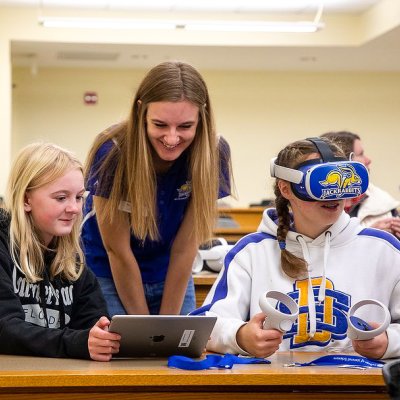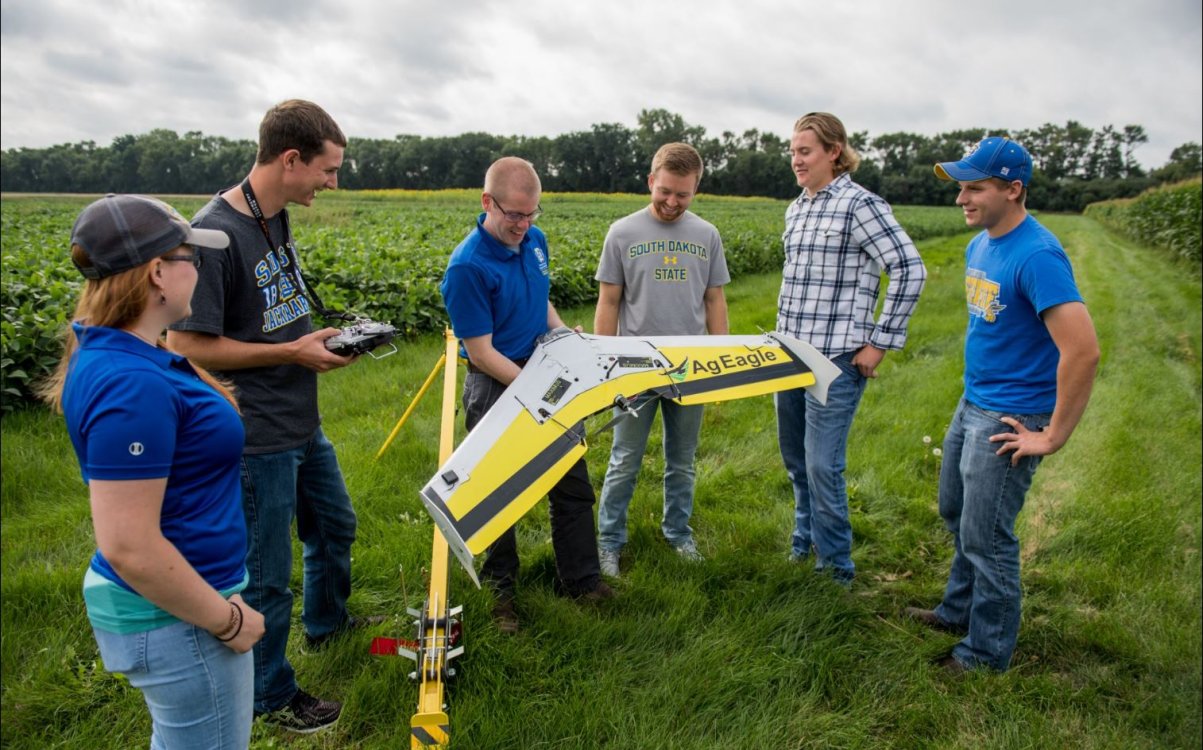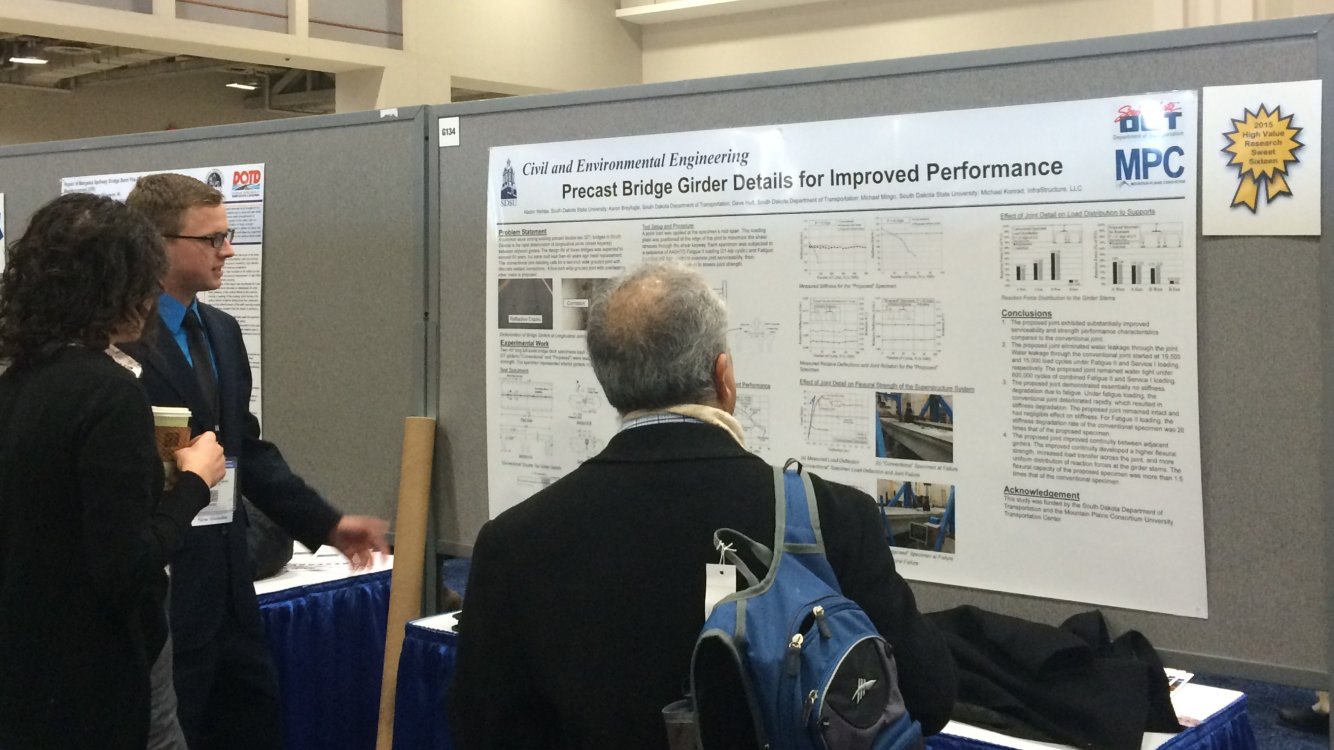South Dakota State University upholds integrity as a core value, expressed through individual and collective practices of honesty, transparency, accountability and respect. The university promotes the responsible conduct of research and ensures faculty, staff and student compliance with relevant federal and state regulations and guidelines.
Oversight Committees
- Animal subjects (InsideState) – Institutional Animal Care and Use Committee (IACUC).
- Human subjects – Institutional Review Board (IRB).
- Recombinant DNA or bio-hazardous materials – Institutional Biosafety Committee (IBC).
Investigators must submit a protocol for review and receive approval from the appropriate committee before initiating any such research.
Training Requirements
All faculty, staff and students involved in research using human subjects, animal subjects or biohazardous materials must first complete the appropriate online training offered by the Collaborative Institutional Training Initiative (CITI) and pass all applicable modules. For more information, see the training (CITI) FAQs. For those working in the Vivarium (Animal Research Wing), please see their website for further training requirements.
All students and postdoctoral researchers working in activities supported by the National Science Foundation or the National Institutes of Health, and staff working on U.S. Department of Agriculture funded research, must receive training in the responsible conduct of research. Such training may be acquired through the Collaborative Institutional Training Initiative (CITI), the University Course GSR 601 (Research Regulations Compliance) or other such programming provided by the research integrity and compliance officer.
Unmanned Aerial Systems (UAS)
The use of UAS (a.k.a. drones) on University-owned property is regulated by South Dakota Board of Regents and SDSU policy. Operators may request permission for indoor use, outdoor use on campus (highly restricted) and outdoor use at the Research Park. Application forms must be accompanied by proof of operator and observer training.
Conflicts of Interest
Faculty and staff are required to disclose annually any significant financial conflicts of interest (FCOI) that would reasonably appear to affect the independence of their research. The Vice President for Research and Economic Development examines such disclosures to determine if a conflict exists, and if so, how it can be managed, reduced or eliminated.
Researchers who apply for or are awarded funding by an agency of the U.S. Public Health Service (PHS) are required to disclose any relevant FCOI via a separate form and receive training in PHS FCOI through CITI every four years.
SDSU’s policy and procedure for reporting and approving conflicts of interest is detailed in policy 4:9. Any person may obtain information about financial conflicts of interest by submitting an email request to the vice president for research.
Faculty members who propose to enter into private practice, private consulting, additional teaching or research, or other activity for which additional compensation is received, must complete a private practice, consulting and outside activity form.
Faculty may devote up to but not exceeding four working days per month on such activity during the contract period. The activity must be related to assigned responsibilities and must promote state and local economic development or benefit the professional discipline or development of the individual or otherwise, as determined by the institution.
Non-faculty exempt and career service employees may not be dually employed, or enter into outside activities that may be reasonably viewed to influence the performance of their professional duties, and must receive prior approval from their supervisor for activities for which leave is required. Outside activities may not interfere with assigned full-time employment responsibilities. Employees with Extension appointments have special restrictions outside activities that differ from other University employees. Approval of proposed paid activities that present actual or potential conflicts of interest or commitment may be withheld or a conflict management plan may be required.
The form must be completed by the individual requesting approval and all approvals must occur before the service to the outside entity can be provided.
Authorship
The authorship guidelines page provides principles and details relating to authorship, acknowledgment, abuse, roles, authorship order and disputes.
Export Controls
Research whose results are not ordinarily published and shared broadly in the scientific community may be subject to export control laws (federal regulations that govern the conditions under which certain information, technologies and commodities can be transmitted overseas to anyone, including U.S. citizens, or to a foreign national on U.S. soil). Oversight and support for such research are provided by the System Export Control Program.
Reporting Research Misconduct
If you suspect research misconduct (fabrication, falsification or plagiarism), or have concerns about animal welfare, human subject protection or biosafety, please report it or contact the research integrity and compliance officer
- Make an online report
- Toll-Free Hotline: 844-880-0004
The online report and toll-free hotline are both provided by Lighthouse Reports. You may choose to remain anonymous when providing information.
Please contact:
Keiji Horikoshi - Research Integrity and Compliance Officer
- Email
- Phone: 605-688-5642
- Office: Morrill Hall 200C
Your identity will remain confidential, and you can make a report without fear of retaliation.

Keiji Horikoshi
Program Director of Research Integrity and Compliance
Division of Research and Economic Development
Research Compliance








